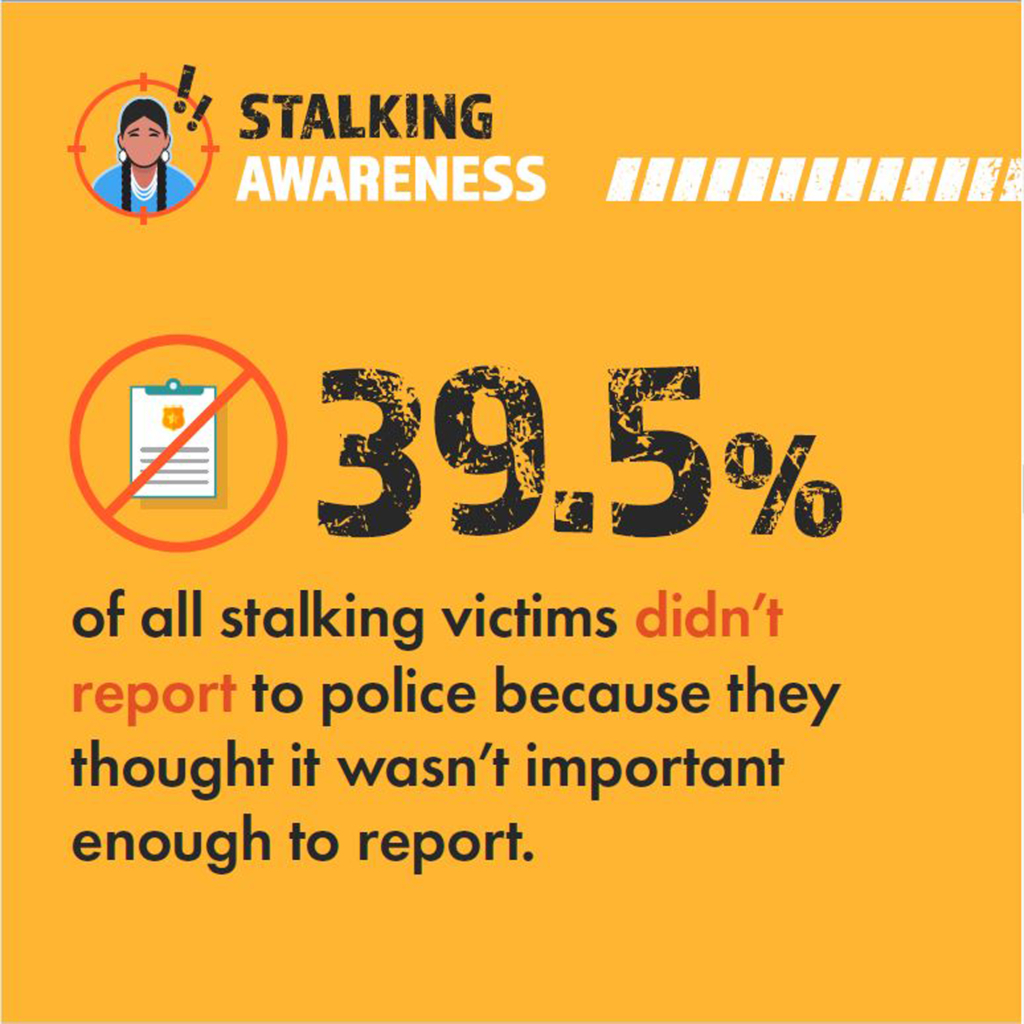By Kayla Woody, CPN House of Hope DVPI Prevention Specialist
Most likely, we have all heard the song Every Breath You Take by The Police and never think twice about the lyrics and behaviors they represent. The catchy tune states, “Every breath you take, every move you make, I’ll be watching you.” If you take the time to read the lyrics and see the message for what it is, it is hard to look at the song the same again.
Many do not recognize the behaviors of stalking or understand how dangerous and deadly they can be. However, the reality is that young people between the ages of 18 and 24 experience the highest rate of stalking but are the least likely age group to report it.

Stalking is a pattern of repeated and unwanted attention, harassment, contact or any other course of conduct directed at a specific person that would cause a reasonable person to feel fear. Stalking laws differ from state to state, but here in Oklahoma, stalking is considered a crime punishable upon conviction with a fine or imprisonment in county jail.
Anyone can be a victim of stalking. The majority of victims know their stalker. They could be a current or former intimate partner, acquaintance or family member.
Many stalkers will do anything to gain control over their victims. It is common for victims to diminish these behaviors and not see them as threatening or harmful.
- Actions start small and can consist of:
- Receiving constant gifts
- Showing up in unlikely places
- Conveniently being there when stressful situations arise
- Repeated phone calls, texts, social media messages and emails
- Over time, behaviors become increasingly violent and can consist of:
- Unwanted contact
- Alienation from friends and family
- Posting information on the internet
- Damaging property
- Leaving threatening messages or texts
If you find yourself a victim of stalking, there are some actions that you can take to de-escalate and stop the behavior. If you feel you are in immediate danger, please call 911.
- Trust your instincts. Many times, the victim of the stalker feels that the behavior is minor and innocent. They believe that if ignored these behaviors will stop, but stalking is dangerous and escalates with time.
- Keep incident reports. Stalking can be difficult to prove in court without proper evidence. It is important to keep track of the stalking incidents that occur. The Stalking Prevention, Awareness, & Resource Center (SPARC) provides a free downloadable incident log on their website at cpn.news/SPARClog and is available in English and Spanish. You can also save emails, text messages, phone logs, photos and video surveillance.
- Connect with an advocate. Make sure to contact an advocate who can assist you in exploring all options to keep you safe. The House of Hope has community advocates who are trained to assist with stalking situations and can provide many resources to protect victims.
There is good news. All forms of domestic violence are preventable, and anyone can be helpful to a victim with just some simple steps.
If you or someone you know is experiencing stalking, intimate partner violence, and/or sexual assault and would like more information, please contact the House of Hope at 405-275-3176 or visit us online at facebook.com/cpnhouseofhope.
